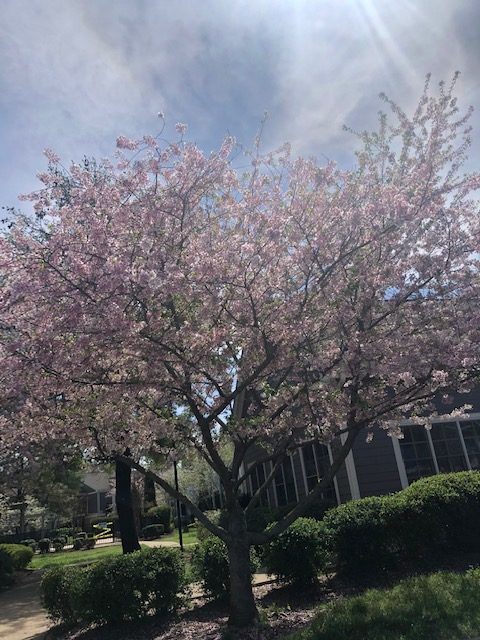Sabbath Keeping Part 2
“There is a freedom that comes from being who we are in God and resting in God that eventually enables us to bring something truer to the world than all our doing,” writes Ruth Haley Barton. Every time I read this line, my heart burns to experience it. I believe this resonates with me at this time in my life because of some tough lessons I’ve learned (the hard way, of course.) First, I can no longer deny that I am weak and grow weary quite easily. When I was twenty, I was certain that with hard work and willingness to make the sacrifices, I could change the world (or at least radically improve it.) After a couple decades of “go big or go home” living, I’ve been humbled and discouraged to find the problems of the world, and all its inhabitants, are quite complicated; religious pat answers solve nothing, and even when I give my everything, it’s often not enough. Secondly, no matter how hard I work and how pure my intentions, I am unable to save or even improve a single person, myself included. Thirdly, I’m coming to understand my true self is not what I do or accomplish or how others see me. God created me and loves me and wants to be with me! Much of this disappointment and exhaustion I brought onto myself, but my heart still yearns to see healing and wholeness come into the world around me. The idea of being able to rest in God and fully bloom into who He made me to be, and out of that place of joy, intimacy and fullness to impact the world – Yes please!! I want that!

I am in desperate need of a spiritual reset; I desire to flourish in the way God intended. Barry Jones gave me a glimpse of what I’ve been craving in this chapter on Sabbath. According to Jones, the practice of Sabbath was grounded in three great events in scripture: creation, exodus and resurrection.
The first command for Sabbath was given in Exodus 20:8-11 in the Ten Commandments. Jones explains, “Here the command to rest is grounded in God’s act of creation and his rest on the seventh day. In both our work and our rest, we image God. But our obedience to his command to keep the Sabbath is one of the most important ways we can be reminded that, while we image God, we’re not him.” He continues, “It is a way of inhabiting the sovereignty of God, a regular reminder that it is God who created and sustains the world and that it will continue to go on spinning whether or not I life a finger. In Sabbath I’m reminded that the world’s maintenance does not depend on me. Sabbath reminds me that God is infinite and I am finite. God is powerful and I am weak. God is self-sufficient and I am dependent. God is all things to all people and I am tiny in comparison to him. This is crucial because many of us live as though we don’t know our limits, as though we don’t want to acknowledge having any. We cling to the sense that we are indispensable. Israel practiced Sabbath- and we do as well- to be reminded that God cares for his creation and that he provides for his people.” This understanding alone relieves me of most of the angst I’ve wrestled with over the years. But there’s more!
“In this restatement of the command in Deuteronomy 5:12-15, attention is not drawn to creation but to God’s mighty act in delivering his people from Egypt. The focus of the Sabbath command in Deuteronomy is on inhabiting the liberating justice of God. The people were called to remember what it meant to be slaves and what it felt like to be liberated.” Later he continues, “The reiteration of the Sabbath command reminds us that the practice of Sabbath is not only for our own personal benefit but is designed to benefit everyone. We are not only to cease our own work, but we’re to relinquish the demand that anyone else work on our behalf. Sabbath is about human flourishing. Not just my flourishing, but our flourishing. Human flourishing. In fact, Deuteronomy tells us, it’s about all creation flourishing. Inhabiting the justice of God includes rest for ‘your ox, your donkey, and any of your animals.’ Sabbath was one of the practices that God intended to ensure that the people of Israel were a people of justice.”
Then we have the resurrection! “In Isaiah 58:13-14 we find the explicit connection between the observance of Sabbath and the experience of joy and delight. This emphasis on joy and delight is grounded in eschatology, the dream of God for a world set right.” “For the Christian this hope for the world to come is secured by our faith in the resurrection of Jesus. In the Easter event, the world to come has broken in on this world. In practicing the Sabbath- eating choice food, drinking good wine, laughing, telling stories, enjoying leisurely conversation and communion- we fashion foretastes of the world to come.” “In Sabbath, we practice new creation. We inhabit resurrection. We taste, touch, hear, feel and smell the hors d’oeuvres of the banquet that awaits us. We get foretastes of shalom.”

This teaching is a feast- multiple courses of flourishing, freedom and shalom. I always knew that God’s commands were meant for our good, but this book has really opened my eyes to the depth of what He intends for us, in this life; in this body, this time, this place. Now that my children are grown and my work load is much lighter (for this season), practicing Sabbath is not as challenging as it once was, but I have many friends with young families or who are single parenting, and some struggle to incorporate this into their lives (and this is the season they need it the most!) Barry Jones is also raising a family and shared how they have grown into observing Sabbath. Let’s continue with this topic next week!
